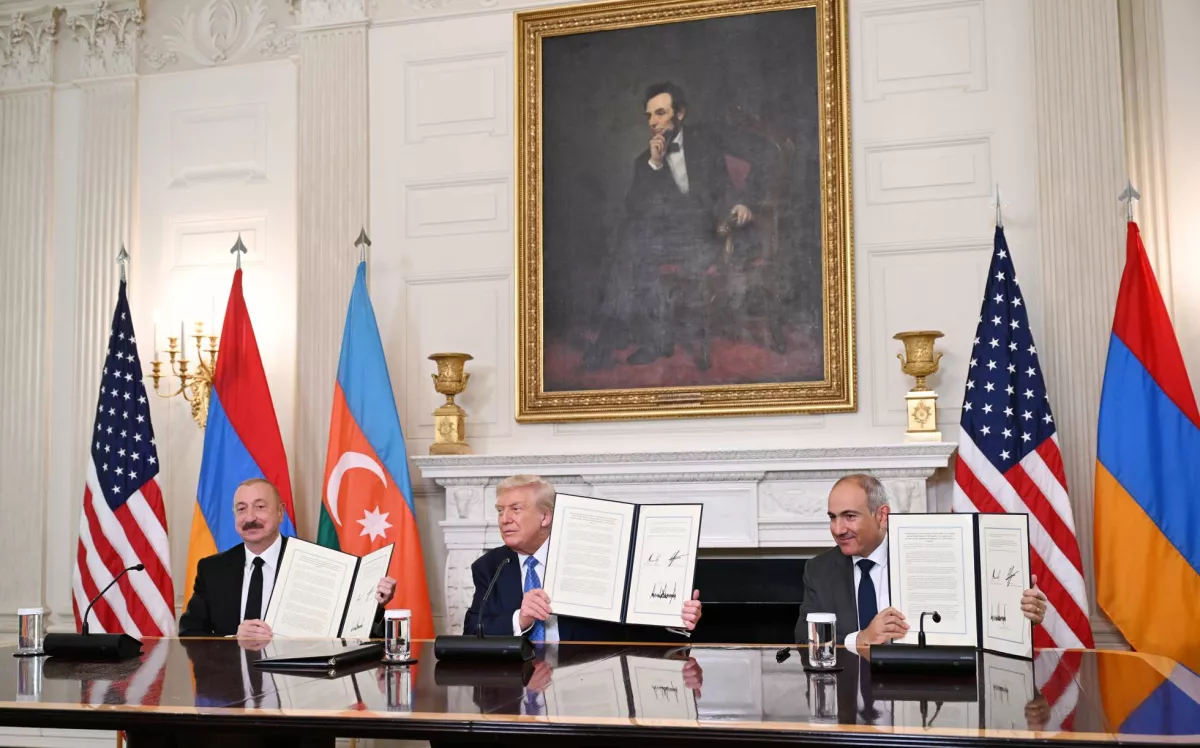New peace accord in Caucasus heralds strategic win for Baku, Tel Aviv Article by The Jerusalem Post
Israel-based The Jerusalem Post has published an in-depth analysis highlighting the strategic significance of the Azerbaijani-Israeli partnership and its pivotal role in reshaping the balance of power in the South Caucasus. Caliber.Az offers its readers selected excerpts from the article.
“The Jewish community in Baku, Azerbaijan, has welcomed the historic agreement signed in Washington between Azerbaijan and Armenia, a deal that ends decades of conflict and strengthens the strategic partnership between Baku and Jerusalem.

Rabbi Zamir Isayev, the chief rabbi of Baku’s Sefardi community, said the agreement sends a clear message of peace and unity while boosting regional resistance to Iran. “It is no surprise that Iran was rattled by the agreement and is now issuing threats and intimidation,” he said.
According to him, the deal continues Azerbaijan’s longstanding policy of fostering connection, cooperation, and peace among nations and religions.
The accord, which includes significant economic and strategic elements, is expected to shift the regional balance of power, limit Iran’s influence, and deepen economic cooperation between Azerbaijan and Israel.
For Israel, the deal carries major strategic importance. It narrows Iran’s regional maneuvering room, which Tehran had exploited for years through its close ties with Armenia to secure prohibited materials, particularly for its nuclear program.
Jewish organizations worldwide and Israeli officials worked extensively to promote the agreement, pointing to Azerbaijan as a Muslim-majority country with no history of antisemitism and close, long-standing ties with Israel. Among the ideas floated was to bring Azerbaijan into the Abraham Accords.
A key provision in the accord involves building a transportation corridor linking mainland Azerbaijan with the Nakhchivan exclave, running through Armenian territory along the Iranian border. US companies will lease the land and construct the corridor, previously known as the “Zangezur Corridor” and now called the “Trump International Route for Peace and Prosperity” (TRIPP).

The plan has drawn sharp criticism from Tehran. Ali Akbar Velayati, senior adviser to Iran’s Supreme Leader Ali Khamenei, warned that Iran would respond strongly to any attempt to build the corridor, calling it “a threat to Iran’s territorial integrity and national unity.”
“The significance of the Zangezur Corridor lies in its role as a key trade route between China and Europe. Iran wants to maintain its influence over this path and opposes any settlement between Azerbaijan and Armenia that would reduce Yerevan’s dependence on Tehran,” wrote Israeli expert Alexander Grinberg, a former intelligence officer, in an article for the Jerusalem Institute for Strategy and Security (JISS).
At present, the most vocal opponents of the agreement are Iran and Russia, both of which have lost influence in the region and are expected to take steps in the coming period to try to undermine its implementation.”
By Vafa Guliyeva








